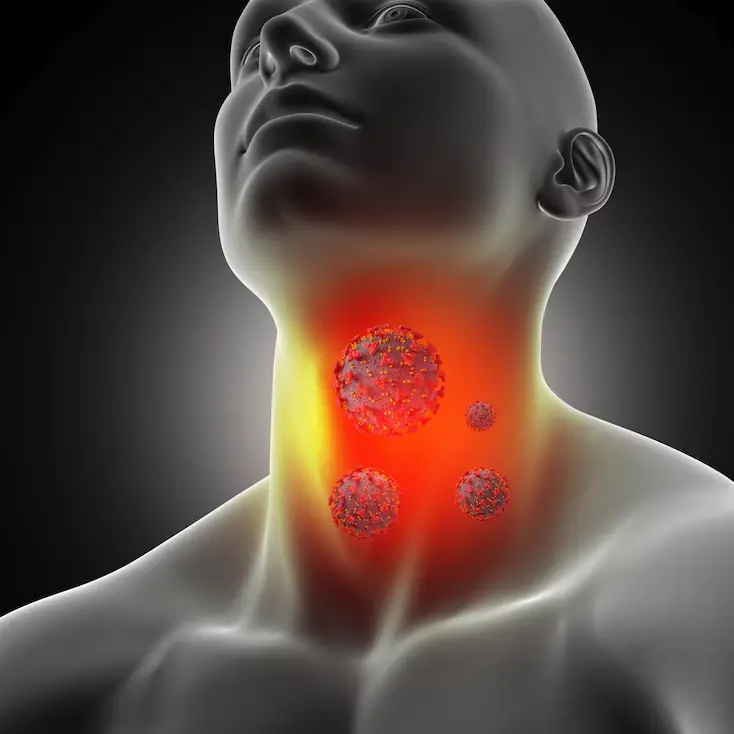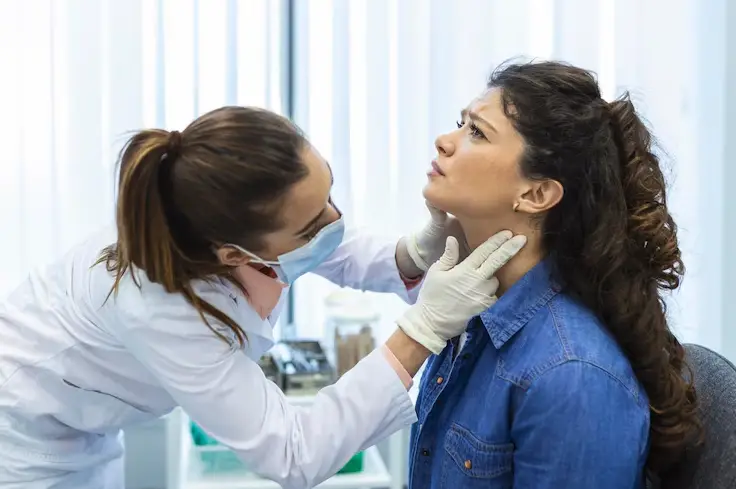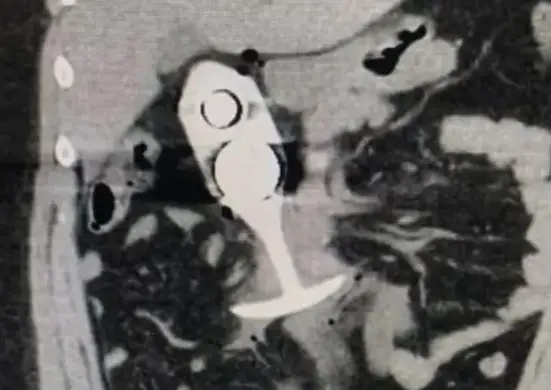Experts issue stark warning as oral sex becomes leading cause of throat cancer

Alarming Rise in Throat Cancer
Medical experts are sounding the alarm over a dramatic surge in throat cancer cases, with oral sex identified as a leading risk factor.
The American Cancer Society projects approximately 59,660 new cases of oral and oropharyngeal cancer in the United States in 2025, alongside 12,770 deaths (Cancer Facts 2025).
Men are more than twice as likely as women to develop this disease, highlighting a significant gender disparity.
This rapid increase has led experts to label the situation an “epidemic,” urging greater public awareness and preventive action.

Understanding Oropharyngeal Cancer
Oropharyngeal cancer affects the tonsils and the back of the throat, areas critical for swallowing and breathing.
Over the past two decades, its incidence has risen sharply, surpassing cervical cancer in prevalence in both the US and the UK.
Dr. Hisham Mehanna, a professor at the University of Birmingham’s Institute of Cancer and Genomic Sciences, notes that this type of cancer has become a major public health concern due to its rapid spread.
HPV: The Primary Culprit
The human papillomavirus (HPV), a group of over 100 viruses, is the primary driver of this epidemic.
As the most common sexually transmitted infection in the US, HPV affects approximately 3 million people annually.
The Centers for Disease Control and Prevention (CDC) reports that 70% of oropharyngeal cancers are caused by HPV (CDC HPV Info).
While most individuals clear HPV infections naturally, a small percentage develop persistent infections that can lead to cancerous changes over time.

Oral Sex as a Major Risk Factor
Dr. Mehanna’s research underscores the strong link between oral sex and oropharyngeal cancer.
In a study of 1,000 UK adults who underwent tonsillectomy for non-cancer reasons, 80% reported practicing oral sex.
Those with six or more lifetime oral-sex partners face an 8.5 times higher risk of developing oropharyngeal cancer compared to those who do not engage in oral sex (The Conversation).
This statistic highlights the critical role of sexual behavior in cancer risk.
Statistical Trends and Insights
The American Cancer Society’s 2025 estimates indicate a lifetime risk of oral and oropharyngeal cancer of about 1 in 59 for men and 1 in 139 for women.
Between 2015 and 2019, HPV-associated oropharyngeal cancer cases increased by 1.3% annually in women and 2.8% in men, reflecting a growing public health challenge.
These trends underscore the need for targeted prevention strategies.
| Statistic | Details |
|---|---|
| New Cases (2025, US) | 59,660 (oral and oropharyngeal cancer) |
| Deaths (2025, US) | 12,770 |
| HPV-Related Cases | 70% of oropharyngeal cancers |
| Risk Increase (6+ Oral Sex Partners) | 8.5 times higher |
| Annual Incidence Increase (2015-2019) | 1.3% (women), 2.8% (men) |

Additional Risk Factors
While oral sex is a significant risk factor, other factors also contribute to throat cancer.
Smoking or chewing tobacco, excessive alcohol consumption, and infection with the Epstein-Barr virus (EBV) increase the likelihood of developing the disease.
Conditions like Gastroesophageal reflux disease (GERD) and occupational exposure to toxic substances, such as asbestos, further elevate risk.
These factors often interact, amplifying the overall risk for individuals.
Prevention Strategies
No method guarantees prevention of throat cancer, but several strategies can significantly reduce risk:
Limit Sexual Partners: Reducing the number of sexual partners and using barrier methods, such as condoms or dental dams, during oral sex can lower HPV transmission risk.
HPV Vaccination: The HPV vaccine, with over 80% efficacy, is a powerful preventive tool. It is recommended for boys and girls before sexual activity begins.
Avoid Tobacco and Limit Alcohol: Quitting smoking and moderating alcohol consumption are critical steps in reducing cancer risk.
Healthy Diet: A diet rich in fruits and vegetables supports overall health and may help lower cancer risk.
Occupational Safety: Workers exposed to toxic substances should follow safety protocols to minimize risk.

The Role of HPV Vaccination
The HPV vaccine is a cornerstone of prevention efforts.
In the UK, over 85% of girls are vaccinated, contributing to herd immunity that also protects boys.
In the US, 54.3% of 13-15-year-olds had received 2-3 doses of the vaccine as of 2020, indicating room for improvement.
Expanding vaccination coverage is essential to curbing the rise of HPV-related cancers.
Expert Insights
Dr. Mehanna explains that while most people clear HPV infections, some cannot, possibly due to immune system defects.
In these cases, the virus can integrate into the host’s DNA, leading to uncontrolled cell growth and cancer.
“The prevailing theory is that most of us catch HPV infections and are able to clear them completely,” he notes.
“However, a small number of people are not able to get rid of the infection, and over time, it can cause the host cells to become cancerous”.
Support and Resources
For those affected by throat cancer or seeking more information, the American Cancer Society offers confidential support through their 24/7 helpline at 1-800-227-2345 or via live chat.
Organizations like the Oral Cancer Foundation and Support for People with Oral and Head and Neck Cancer (SPOHNC) provide additional resources and community support (Asbestos.com).
The link between oral sex and oropharyngeal cancer highlights the urgent need for education and prevention.
By adopting preventive measures such as HPV vaccination, limiting sexual partners, and maintaining a healthy lifestyle, individuals can significantly reduce their risk.
As the epidemic of throat cancer continues to grow, public health initiatives must prioritize awareness and access to preventive tools to protect future generations.



































